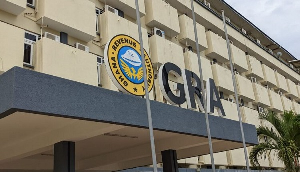This is the second part of an article that points out the immense contribution of telecom operators to the economy in the midst of predatory conditions. TAXES, LEVIES, FEES AND PENALTIES
Taxes alone take about 38% of the revenue of telecom operators (in India it is 28% but it is killing the industry), and the operators also invest significant portions of their revenues in network infrastructure and technology expansion, marketing and advertising, CSR, remuneration of staff, and various sponsorships and activities in country.
But there are some other major cost challenges; for instance, in the second quarter of 2010 and 2011, operators have had to implement comprehensive subscriber registration and mobile number portability (MNP) at huge cost, running into millions of dollars for some operators.
NCA has also commenced enforcement of its mandated quality of service (QoS) key performance indicators (KPIs). Meeting the mandate will require huge capital expenditure (CAPEX) for network re-dimensioning for operators. Meanwhile NCA is now also imposing penalties for QoS infractions, and the penalties are not necessarily proportionate to the infractions. The NCA has just announced it will not assist defaulting operators to clear their equipment at the ports, unless they pay penalties and charges fully.
LOCAL GOVERNMENT TAXES
The worst of the challenges is the additional taxes and levies placed on telecom operators by various Metropolitan, Municipal and District Assemblies (MMDAs), and other agencies like Environmental Protection Agency, Town and Country Planning, Civil Aviation and others with respect to mounting infrastructure to offer service and also do outdoor advertising. Telecom operators need to mount masts and lay cables and fibre in order to reach deprived communities with technology that come along with income generating opportunities, and ultimately economic empowerment. This is not different from other utility service providers like water and electricity companies laying pipes, cables and mounting pylons to distribute water and power respectively. But MMDAs charge telecom operators for each mast they mount, in addition to paying for their business operations permit. Meanwhile they do not charge the Electricity Company of Ghana, for instance, for mounting pylons to distribute power. In some cases, what the MMDAs charge per mast is way above what some companies pay for their entire business operation permit. Obviously, television and radio stations do have masts, and some banks do have masts too but they are also not charged separate levies for each mast they mount; all those charges are included in their one time business operations permits fees. But it seems the word ‘telecom’ suddenly brings out the predator in the MMDAs. That is how come recently some MMDAs threatened to close down offices of some telecom companies for non-payment of predatory levies and taxes. The Local Government Bulletin published on May 14, 2010 shows some chilling examples of how discriminatory MMDAs are towards telecom operators. For example, for General Utility Excavation Permit, i.e. a permit for utility service providers (water, electricity, telecom) to dig the ground and lay their cables and fibre, the Birim South District Assembly, for instance, charged MTN and Tigo GHC7,500 and GHC6,500 respectively, whiles other institutions including ECG paid between GHC500 and GHC1,000; that is at up to 750% higher for telecom operators. Again, the Asikuma-Odoben-Brakwa District Assembly charged MTN, Zain (Airtel), Tigo and GT (Vodafone) a whopping GHC9,000 Property Rate whiles charging other multinationals and top 100 companies like commercial banks GHC700, Insurance companies GHC200, ECG, GHC1,000, Ghana Water, GHC400, SSNIT, GHC1,000 and Financial services GHC400 among others. That is 800% higher than the next highest amount, and 4,500% higher than the lowest among the institutions mentioned. There are other institutions which pay even lower rates, but telecom operators pay the highest. What is the message? RELOCATION COST Sometimes, utility service providers have had to relocate their cables, fibres and pipes to make way for road construction. This cost money, and it is absorbed by government or the road contractor for the water and electricity companies, but the telecom operators are made pay for relocation on their own, even though they paid for the right of way to lay the cable in the first place. Again when road contractor cut telecom fibres, the telecom operators pay for repairs and replacement, whiles also losing revenue and integrity because of service interruption to their customers. It could not get any more discriminatory and predatory than this; it is as if there is a grand plan to welcome telecom operators with open arms and then kill them slowly once they are here. SIM CARD LEVY It is a shame that import duty on mobile phones was dropped and talk tax was put in its place to subtly burden the telecom operators some more. But the worst part is that even the Ghana Copyright Regulations, 2010 has listed SIM card as ‘a device capable of being used to copy copyright works’ and so a levy of 20% of the cost, insurance and freight value of SIM cards have been put on telecom operators to pay. For Pete’s sake, which part of a SIM card can practically be used by a subscriber to copy music, film, a book or any copyright material for that matter? This is how predatory and ridiculous the laws have become with regards to the telecom industry. One wonders whether the framers of the law consulted telecoms experts before concluding that a SIM card can be used to copy copyright material. Whereas that is technically possible, it is not practical and impossible for a subscriber to copy copyright material unto a SIM card until an operator allows it, and operators do not allow it. Besides, the SIM itself has up to 64kilobytes of memory, too small to copy anything significant. So what is the point of that law? As a country, our long-term vision for telecoms industry’s contribution to the economy far outstrips what short-term taxes, fees and levies can do. In that respect, the Kenyan example comes in handy, whereby all the charges are incorporated into a Single Business Permit (SBP) by law, and all other side charges and indeed unjustifiable and irrelevant ones are abolished completely to allow telecom operators some breathing space to investment and expand. THE KENYAN EXAMPLE The Kenyan Regulator, Communication Commission of Kenya did not mince words at all in articulating the provisions of the Kenyan Communication Act, 1998, in a public notice that sought to ward of predators like local government agencies from placing additional levies and taxes on telecom operators. CCK stated clearly that once an operator has a permit under the Act, there was no need for another permit from Local Government Agencies because that constitutes duplication of licenses and comes with additional fees. The CCK noted that such additional levies and charges from local government agencies are inconsistent with national policy of economic growth and poverty reduction, of which the telecom industry is an obvious key driver, so even if they charge any fees at all, it should be very minimal. CCK itself recently put its money where its mouth is by leading the way in heavily slashing regulatory fees by up to 75% for telecom operators. That is leadership by example, and it stated that the purpose was to give the operators space to expand and reach the deprived parts of the country. Reports said the directive to slash came from the Kenyan presidency and the regulator welcomed it and acted upon it instantly. But in Ghana, the main regular, NCA itself is probably the predator-in-chief, finding ways of milking the telecom operators through immeasurable penalties and by holding on to spectrum that could be given to operators in a unified license (as done in Nigeria and Tunisia). So the NCA seem to lack the moral standing, and probably unwilling to admonish other state agencies to back off from the telecom operators. This is clearly another reason the critics of the NCA are right. The NCA has become more like a post master, waiting to sign off deals and collect money, reducing regulation to finding ways to collect money from telecom operators; and those who pay readily are the favourites of the NCA, and they get things done for them with less stress. In spite of all these, politicians, including the Minister of Communications keep trumpeting the need for telecom operators to give free weekend calls and eventually give free voice services. Maybe the Minister knows something that the rest of the public do not know because he has not shared with the public. But looking from the popular stand and through the journalistic lens, there seem to be a notion that the telecom operators are making some huge moneys and shipping it out of Ghana so every effort must be made to squeeze as much money out of them as possible. SHIPPING MONEY ABROAD Speaking of shipping moneys out of the country, every foreign investor and multinational ships money out of Ghana, like they do in every other jurisdiction; to the extent that they borrowed money either from their sister operations in other jurisdictions, or from pension funds of their mother countries, they have to ship money back to repay those loans with interest. For instance, Glo is here and is not doing commercial mobile service yet but they have already invested millions of dollars and even sponsor Ghana’s Premier League and National Soccer Team. Vodafone inherited a state-owned telecoms operator which was virtually dead, but they have revived it into a profit making entity through heavy investments of some $500 million plus they brought from somewhere. The same applies to MTN, Tigo, Airtel, Expresso, and all other genuine multinationals in country. But sadly, when they make those initial heavy investments, predator-minded politicians and regulators pretend they are not aware that a time would come when the companies need to recoup, so you find politicians always making reference to moneys that multinationals are shipping out of Ghana as a reason to squeeze them some more. Sometimes African leaders behave like ostriches, pretending not to see the obvious from the onset. That kind of approach to our relationship with multinationals could discourage serious investments and leave us with pedestrian and peripheral foreign director investment in Ghana, while the same companies invest heavily in jurisdictions where the leaders and the systems for that matter are not ostriches and predators.
WAY FORWARD As a way forward, it would be good to articulate some of the proposals on NCA’s own website and other sources, which in my opinion are good considerations to move this industry forward in a way that kills that predator-prey scenario and ultimately inures to the benefit of Ghana’s policy of economic growth and poverty reduction, which is not different from most developing countries’. First of all, as stated above, the multiple taxes, levies, fees, charges and penalties by local government agencies must be abolished or reduced to the barest minimum by law, at least to match with charges on other companies in the country; all permits relating to telecoms business should be culminated into one; unified licensing (fixed and mobile) should be a matter of national policy to stimulate growth and competition, particularly in fixed line operations; it would also be good to consider issuing spectrum licenses at a concessionary rate to encourage growth and continued affordable tariffs for citizens.
In Kenya, there was a presidential directive to slash regulatory fees. I do not see the NCA taking the initiative to slash regulatory fees, but a presidential directive can help, so that the telecom operators would have a bit more free funds to invest and go into areas where the motivation for the operators is not necessarily ARPU, but the joy of empowering rural dwellers and creating income generating opportunities in otherwise derive communities.
Samuel Nii Narku Dowuona/Ghana
Opinions of Wednesday, 19 October 2011
Columnist: Dowuona, Samuel Nii Narku














